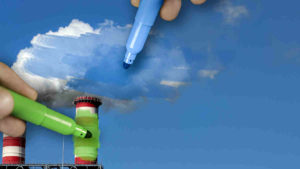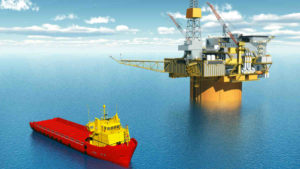S&P puts mining, oil & gas under the microscope on ESG; here’s how they rated

Ratings agency S&P Global Ratings published its first ever series of environmental, social and corporate governance (ESG) report cards for the mining and oil and gas sectors this morning.
The agency rated both the broader sector as well as individual companies. It believes mining overall has well above average environmental credit risk.
Coal mining possesses the highest environmental risk as it emits twice as much greenhouse gas as natural gas.
Meanwhile, aluminium had considerably less risk because it can be easily recycled, although it is more energy intensive than steel.
S&P also argued social exposure and governance were important for companies.
“Governments around the globe are increasingly demanding social infrastructure and other forms of social responsibility from miners,” it said.
“Poor management of these factors leads to reputational issues, licence suspension/termination, adverse litigation, staffing issues and unrest.”
S&P also warned that poor governance was more recurrent among smaller companies.
It gave three reasons: first their financial strength is weaker, second they did business in riskier jurisdictions and third they were focused on short-term gains.
How ASX players rank
The report went on to mention several specific companies although the majority were large multinationals.
Santos (ASX:STO) was assigned a BBB- rating. Analyst Minh Hoang said Santos was facing increasing public scrutiny to reduce carbon emissions and was setting medium and long-term targets.
Gold miner Newcrest Mining (ASX:NCM) also obtained a triple B. In its favour, Newcrest had a 30 per cent greenhouse gas emission reduction target.
On the other hand, S&P had not forgotten the embankment slump incident at Cadia in 2018. While there was no environmental impact or injuries, gold production dropped and consequently earnings were hit.
BHP (ASX:BHP) and Rio Tinto (ASX:RIO) both won an A rating. BHP managed to reduce its emissions through its 2015 spin off of South32 (ASX:S32).
Meanwhile, Rio Tinto reduced its emissions by 29 per cent between 2008 and 2018 thanks to initiatives like converting its aluminium smelters to hydropower.
Companies that rated higher included American oil and gas giant ExxonMobil, which scored itself a AA+ rating.
The Dallas-headquartered company is spending $US5.7 billion in 2019 and 2020, just under 10 per cent of its capital expenditure, to minimise its environmental impact.
S&P also pointed to ExxonMobil’s strong safety and governance record. The ratings agency noted that the board considered climate change among the risks of potential changes in demand for its products.
One company that rated much lower was American coal miner Murray Energy, which attracted a D rating. It doesn’t help that the company is currently bankrupt.
One of Murray Energy’s sites, the Hillsboro mining complex, has sat idle since 2015 due to a fire.
But much more broadly, S&P did not like the fact that US coal miners generally are facing declining demand and weaker profit margins.
READ MORE: Ethical Investing: Can mining be an ethical investment?
Related Topics
UNLOCK INSIGHTS
Discover the untold stories of emerging ASX stocks.
Daily news and expert analysis, it's free to subscribe.
By proceeding, you confirm you understand that we handle personal information in accordance with our Privacy Policy.








